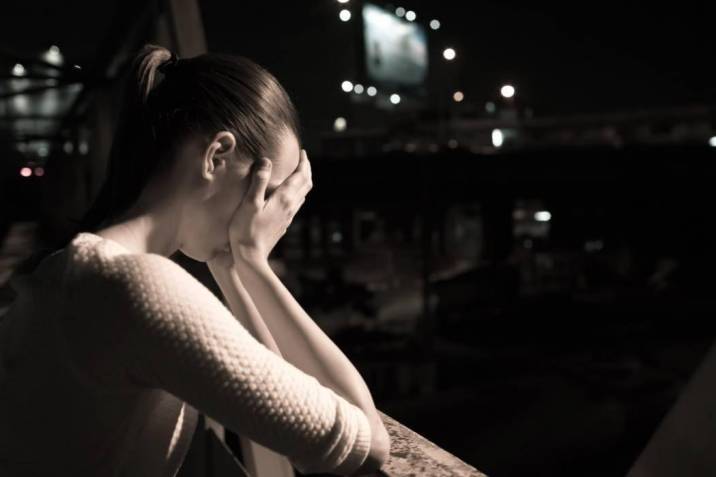Why Does Everybody Hate Me

Do you ever ponder why it feels like everyone despises you? It’s a prevalent perception that can be isolating and distressing. But here’s the catch – it may not be true.
We’ll explore the reasons behind this sentiment. From psychological explanations to the impact of discrimination, we’ll uncover the underlying causes of feeling disliked by everyone. By understanding the roots and recognizing distortions, we can overcome this sentiment. Let’s delve into it and understand why it may appear like everybody detests you.
Key Takeaways
Why Does Everybody Dislike Me?
To conclude, feeling a sense of universal disdain towards oneself can be a distressing and isolating experience. However, it’s important to recognize that this perception may not hold true. Factors such as:
- Psychological explanations
- Individuals with highly sensitive personalities
- Mental health conditions
- Discrimination
- Personalization
- Comparison on social media
- Loneliness
- Low self-esteem
- Insecurity
All of these can contribute to this belief. By understanding these underlying causes and challenging distorted thinking, we can take steps to manage and overcome this feeling.
Remember, you aren’t alone, and there’s support available to assist you through this challenging time.
Understanding the Feeling of Being Hated
Feeling like everyone despises, you often stems from internalized negative thoughts and emotions. It’s crucial to recognize that cognitive distortions may influence this sentiment, such as black-and-white thinking and generalizing too much. These distortions can skew your perception of others’ opinions and make you believe everyone dislikes you.
Low self-esteem and negative thoughts can also contribute to this perception. Social anxiety can amplify these emotions, making it challenging to engage with others and feel accepted. Challenging these negative thoughts and substituting them with more realistic and positive ones is vital.
Seeking support from friends, loved ones, or a therapist can also be beneficial in addressing these emotions and enhancing your self-esteem. Remember, not everyone hates you, and it’s important to concentrate on your values and self-acceptance.
Psychological Explanations for Feeling Hated
Feeling hated can sometimes be a result of cognitive distortions and overgeneralizing. Considering how your mental well-being and insecurities may shape this belief is worth considering.
Mental health conditions like anxiety, depression, and mood disorders can contribute to feeling disliked by others. These conditions can impact how you perceive others’ opinions, leading to negative thoughts and assumptions.
Insecurity can also intensify the feeling of being hated. Insecurity often arises from fear and the dread of rejection, which can distort your understanding of others’ sentiments towards you.
The Impact of Highly Sensitive Personalities
Recognize that having a highly sensitive personality can influence your perception of others’ emotions and contribute to the belief that everyone dislikes you. It’s important to understand the impact of your highly sensitive nature on your feelings of being hated. Here’s why:
- Highly sensitive individuals may be more prone to feeling disliked by everyone.
- Socially hypersensitive people experience greater fluctuations in self-esteem and negative reactions to feedback.
- Minor incidents or lack of interaction can trigger negative thoughts in highly sensitive or insecure individuals.
These factors can intensify your belief that everyone hates you. However, it’s crucial to remember that this perception may not reflect reality. Seek support from understanding individuals who can validate your emotions and practice self-care to manage overwhelming feelings. It’s also important to address any underlying mental health issues or personality disorders that may contribute to these negative beliefs.
Given the aforementioned factors, it’s crucial to understand that being highly sensitive can greatly influence how you perceive others’ emotions and contribute to your belief that you’re universally disliked. Individuals with highly sensitive personalities may be more susceptible to feeling disliked by everyone around them.
Socially hypersensitive people, in particular, experience significant fluctuations in their self-esteem and negative reactions to feedback. Moreover, minor incidents or a lack of interaction can easily trigger negative thoughts in highly sensitive or insecure individuals.
It’s important to recognize that these factors can significantly amplify your belief that everyone hates you. However, it’s important to remember that this perception may not reflect reality. Seeking support from understanding individuals who can validate your emotions and engaging in self-care activities to manage overwhelming feelings are equally crucial. Addressing any underlying mental health issues or personality disorders that may contribute to these negative beliefs is vital.
The Role of Mental Health Conditions
Mental health conditions can significantly impact how you perceive others’ opinions and contribute to the belief that you’re universally disliked. Negative emotions, such as low self-esteem, often accompany these conditions, leading to irrational thoughts and assumptions.
It’s important to recognize that these beliefs aren’t grounded in reality but are influenced by underlying mental health issues. Conditions like anxiety, depression, and mood disorders can result in distorted thinking patterns and an intensified feeling of being disliked by everyone.
Understanding that your mental health condition may influence your thoughts and emotions is vital in challenging and managing these negative perceptions. Seeking professional assistance to address and manage your mental health can provide the necessary support and resources to navigate these feelings and enhance your overall well-being.
The Influence of Discrimination on Feeling Hated
Racial stereotypes, prejudice, discrimination, and systemic racism can greatly influence the feeling of being hated by others. Experiencing discrimination or prejudice based on your race can create insecurity and a belief that everyone despises you. This stigma can profoundly affect your mental well-being, leading to a sense of low self-worth and even contributing to the development of mental health problems.
Constantly facing discrimination and racism can make it difficult to escape the negativity surrounding you. It’s important to recognize that these emotions aren’t your fault and seek support to address the consequences of discrimination on your perception of being disliked.
Understanding the Perception of Being Hated
Understanding the reason behind feeling disliked by others can provide valuable insight into your perception and help address any underlying factors contributing to this belief. It’s normal to experience moments where you believe everyone has negative feelings towards you. Still, it’s important to acknowledge that negative thinking patterns can influence these thoughts.
Sensing that you’re incapable of doing anything right or that nobody holds any affinity for you may lead you to accept these notions as truth. Nevertheless, it’s imperative to challenge these thoughts and consider alternative perspectives. Remember that not everyone will appreciate you, and that’s perfectly acceptable. It doesn’t necessitate that everyone despises you.
Concentrate on cultivating self-assurance and surrounding yourself with supportive individuals who value you for who you truly are.
Factors Influencing the Belief of Being Hated
You may be influenced to believe that everyone dislikes you due to internal fears or maladaptive thinking patterns. When it comes to feeling disliked, several key factors can contribute to this belief. Here are some important factors to consider:
- Low self-esteem: A diminished sense of self-worth can make you more susceptible to believing that everyone harbors negative feelings towards you. Pessimistic thoughts about yourself can distort your perception of how others perceive you.
- Common cognitive distortions: Cognitive distortions, such as black-and-white thinking and generalizing, can lead you to believe that everyone holds negative sentiments towards you, even when it may not be the case.
- Social interactions: Adverse experiences in social interactions, such as rejection or criticism, can reinforce the notion that everyone despises you. It’s crucial to remember that not every interaction reflects your value.
- Core beliefs: Deep-rooted core beliefs about yourself, such as feeling undeserving of love or acceptance, can contribute to the belief that everyone holds animosity towards you. Challenging these beliefs with the assistance of a therapist can be advantageous in altering your perspective.
Remember that these factors can shape your perception but don’t necessarily align with reality. Seeking support and challenging negative thoughts can aid you in navigating these emotions.
Frequently Asked Questions
How Can Social Media Impact the Perception of Being Hated?
Social media can shape your perception of being disliked by promoting feelings of inadequacy and low self-esteem. It’s crucial to remember that social media does not provide an accurate reflection of reality, and it’s important to limit your exposure to accounts that hurt your self-worth.
Social media can significantly impact how we view ourselves. It is equally important to remember that social media does not accurately portray reality. Minimizing your exposure to accounts that negatively affect your self-esteem is crucial.
The influence of social media on our perception of being disliked cannot be overlooked. Additionally, it is important to note that social media does not accurately represent reality. As such, limiting your exposure to accounts that harm your self-esteem is recommended.
It is worth noting that social media can greatly influence how we perceive being disliked. It is equally important to bear in mind that social media does not present an accurate depiction of reality. Therefore, it is advisable to restrict your exposure to accounts that negatively influence your self-esteem.
In conclusion, social media can profoundly impact how we perceive being hated. However, it is crucial to remember that social media does not accurately reflect reality. It is important to limit your exposure to accounts that negatively affect your self-esteem.
Not only can social media influence our perception of being disliked, but it is also essential to recognize that social media does not accurately represent reality. Therefore, it is crucial to minimize your exposure to accounts that harm your self-esteem.
Overall, social media can significantly shape our perception of being hated. However, it is important to acknowledge that social media does not present an accurate depiction of reality. Therefore, it is vital to restrict your exposure to accounts that negatively impact your self-esteem.
What Are Some Coping Strategies for Highly Sensitive Individuals Who Feel Disliked by Everyone?
If you feel disliked by everyone, as a highly sensitive person, it may be helpful to explore various strategies for coping. Start by prioritizing self-care, taking the time to nurture and attend to your own needs. Seek support from empathetic individuals who can understand and provide validation for your emotions. It is important to acknowledge and validate your own feelings, as they are valid and deserve recognition. Additionally, managing overwhelming emotions can be achieved by implementing personalized coping strategies that work best for you. Remember, everyone’s experience is unique, and it is crucial to find what works for you.
Delving into self-care practices is a necessary first step. This can include activities such as taking time for yourself, engaging in activities that bring you joy, and practicing self-compassion. Seeking support from understanding individuals who can empathize with your experiences can also be immensely beneficial. Validating your emotions is equally important, as it allows you to acknowledge and honor your feelings without judgment. By implementing self-care and coping strategies, you can effectively manage overwhelming emotions and create a sense of balance in your life.
Can Underlying Mental Health Issues Contribute to the Belief That Everyone Hates You?
Yes, underlying mental health issues can contribute to the belief that everyone despises you. Depression, anxiety, and other disorders have the ability to distort your perception of others’ opinions. Seeking professional assistance can address and manage these concerns.
How Does Discrimination and Prejudice Affect Individuals’ Feelings of Being Hated?
Discrimination and prejudice can deeply impact one’s feelings of being hated. They have the power to induce internalized shame, diminish self-esteem, and foster the belief that the entire world is aligned against you. Acknowledging this impact is vital for addressing negative perceptions.
In light of these considerations, it is important to recognize the tremendous influence that discrimination and prejudice can exert on an individual’s emotions. They can evoke a sense of shame that becomes deeply ingrained within oneself, leading to a diminished sense of self-worth. Furthermore, these experiences can instill the perception that the world at large harbors animosity towards you.
It is equally important to note that these effects are not limited to the individual alone. Discrimination and prejudice can have an identical impact on others, causing them to feel equally hated and marginalized. This unique experience can be profoundly damaging to one’s mental and emotional well-being.
Moreover, it is crucial to understand that discrimination and prejudice are not isolated incidents, but rather pervasive societal issues. They exist in various forms, ranging from overt acts of hate to subtle biases that permeate everyday interactions. Together with these manifestations, they perpetuate a cycle of negativity and hostility.
Of course, it is likewise important to consider the impact of discrimination and prejudice on an individual’s overall outlook on life. Comparatively, these experiences can shape one’s perspective, causing them to view the world through a lens of distrust and apprehension. Correspondingly, they may come to believe that their worth and abilities are inherently lesser than others, further diminishing their self-esteem.
Furthermore, it is crucial to recognize that discrimination and prejudice do not occur in isolation. They are often intertwined with other forms of marginalization and oppression. Similarly, they can intersect with aspects such as race, gender, sexuality, and socioeconomic status, amplifying their impact on an individual’s well-being.
In addition, it is important to understand that discrimination and prejudice are not limited to specific contexts or individuals. They can be experienced by people from all walks of life, regardless of their background or personal characteristics. Furthermore, these experiences can occur within various spheres, including education, employment, and social interactions.
Therefore, it is imperative to address the issue of discrimination and prejudice head-on. Firstly, society must recognize the profound impact they have on individuals and work towards fostering empathy and understanding. Secondly, efforts should be made to dismantle systemic barriers and create inclusive spaces that value diversity. Lastly, individuals must be encouraged to speak out against discrimination and prejudice, creating a collective voice that advocates for change.
Crucially, it is necessary to acknowledge that discrimination and prejudice are not simply inconveniences or minor grievances. They have far-reaching consequences that can deeply affect an individual’s sense of self and well-being. However, by actively confronting these issues, we can strive towards a more inclusive and accepting society.
What Role Does Personalization Play in the Belief That Everyone Hates You?
Personalization plays a significant role in the belief that everyone despises you. By attributing unrelated situations to yourself, you reinforce this perception. Remember to challenge this assumption and acknowledge that not everything revolves around you.
Conclusion
Why Does Everybody Dislike Me?
To wrap up, feeling a sense of universal disdain towards oneself can be a distressing and isolating experience. However, it’s important to acknowledge that this perception may not hold true. Factors such as:
- Psychological explanations
- Individuals with highly sensitive personalities
- Mental health conditions
- Discrimination
- Personalization
- Comparison on social media
- Loneliness
- Low self-esteem
- Insecurity
All of these can contribute to this belief. By understanding these underlying causes and challenging distorted thinking, we can take steps to manage and overcome this feeling.
Remember, you aren’t alone, and there’s support available to assist you through this challenging time.






